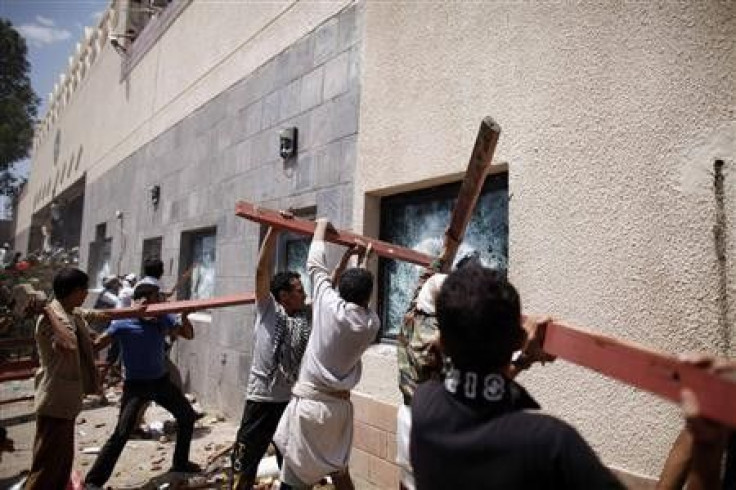Innocence Of Muslims: Was It ‘Impossible To Predict’ Attacks On US Missions?

U.S. officials have acknowledged that they did not issue a high alert to the diplomatic missions about the security threat after an Arabic talk show Saturday telecast parts of an anti-Muslim film made in the United States, which the agencies believe triggered the violent protests against the country's missions in Libya, Egypt and Yemen, Reuters has reported.
Egyptian TV network al-Nas Saturday telecast snippets from the film which contained derogatory and insulting material about Islam and Prophet Mohammad. The video clippings shown by the television channel was taken from a film titled "Innocence of Muslims," uploaded on YouTube.
Three U.S. officials cited by Reuters said that "the broadcast did not prompt strong warnings from intelligence agencies or the State Department of possible threats to U.S. diplomatic missions in the Islamic world."
"There was at least one specific warning about possible unrest in the region that was circulated within the government, but was not so alarming as to lead to a major upgrade in security for a possible emergency," one of the officials who spoke on condition of anonymity told to Reuters.
The U.S. agencies maintained that the attacks on the American Consulate in Benghazi, Libya, that killed four Americans, including Ambassador Christopher Stevens, might be preplanned by militant factions.
However, the influence of the media is on the rise in Middle East countries with the social media getting popular and state restrictions loosening. There is also a huge influx of inflammatory content in the internet and media, and experts feel it is difficult to predict the attacks or give warnings every time such materials are published.
"The number of potentially inflammatory things that are said or broadcast every week (is so large) ... that warning about all of them would be useless," said Paul Pillar, former top U.S. intelligence analyst for Middle East and South Asia, Reuters reported. It was "impossible to predict" the kind of violent reaction that occurred in Libya, Egypt and elsewhere, he added.
However, the issue has once again brought the debate on the lack of proper security alerts from the U.S. agencies to the forefront.
© Copyright IBTimes 2024. All rights reserved.












